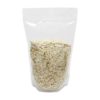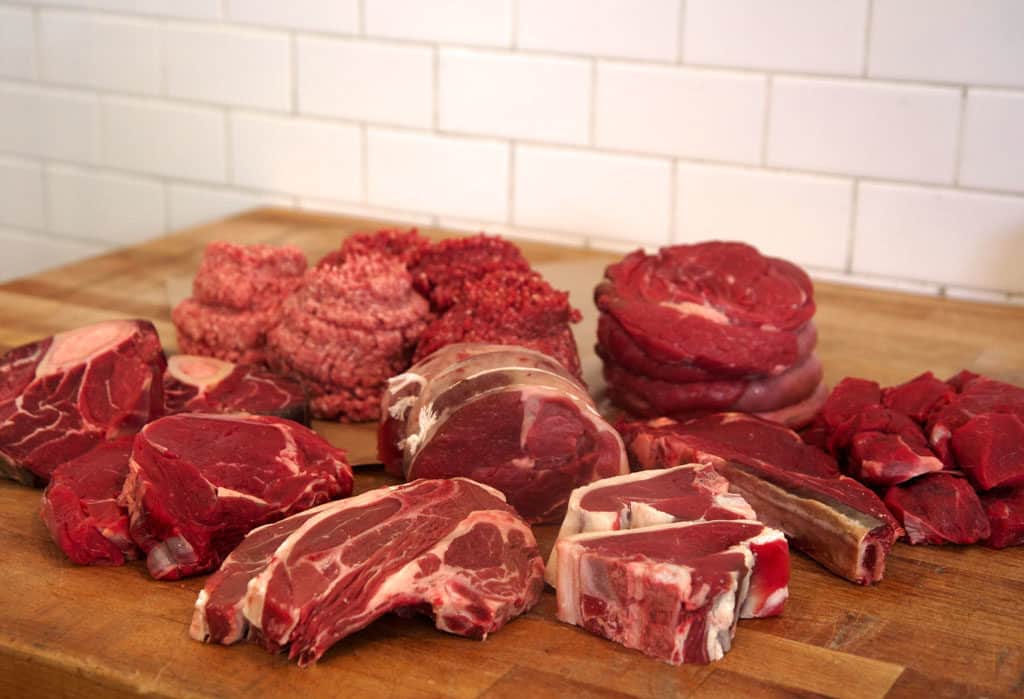Blog
Should We Be Eating Less Meat?
For many of us, eating meat is something we do without any thought or consideration. Eating breakfast, grabbing lunch on the go at work and coming home to throwing something together and sticking it in the oven, are all actions we do without really considering the amount of meat that is in those ingredients. Of course we tend to think about whether our food is healthy, we might choose the chicken salad at lunchtime rather than a wrap and we’ll more than likely add vegetables to our evening meals, but the amount of meat we consume tends to usually slip by us. I mean unless you’re a vegetarian, why would you think about it?
In actual fact the amount of meat we consume as a nation, and even worldwide, has quite a lot of consequences on our environment, our health, the production of our food, and of course animal welfare. It’s quite surprising – and a little scary – that the amount of meat we choose to consume impacts so many areas of our world, without us even noticing.
Environment
The livestock industry, the businesses that provide us with our steaks, sausages and chops that we so regularly enjoy, contributes enormously to global warming. Cattle, for example, produce a huge amount of methane, a gas that when emitted into our atmosphere is 23 times more potent by quantity than that of CO2. When you consider how many businesses farm cattle worldwide, and how much cattle are consumed daily, worldwide, those figures are a little concerning. Of course you might think that you ordering the vegetable curry rather than a steak when you meet your friends for dinner on a Friday won’t make the slightest bit of difference, if we all did that once or twice a week, we would make a lot of difference together.
Food Production
The industry that produces our meat, seafood included, has been strained for several years now. Whilst we may not be a part of the natural food chain anymore, we are still at the top of a food chain that is capable of farming meat for our own personal consumption, and capable of using technology to fish for our ever growing demand of seafood. Overfishing in the food industry is leading to a significant decline and collapse in global fish populations. With water temperatures rising and fish already struggling to repopulate numbers, our desire for seafood is contributing to further decline. And as fish population’s decline, the sea creatures higher in the food chain that have lived in our oceans for centuries, are also struggling to feed. Our food industry is constantly expanding to meet our needs, and eating a few meat-free meals a week each, could truly help soften the toll we are taking on our oceans.
Health
Let’s not forget our health in all this. There’s no denying that eating a few meals a week that contain more nutrition rich vegetables and less meat would do us all the world of good. Meat free meals don’t have to be plain and boring. With the amount of people choosing to eat less or no meat, the demand for meat-free recipes and restaurant has given us all some exquisite cuisines and tasty meal ideas. People who are vegetarian or vegan tend to consume far less calories than meat-eaters do in a week, and whilst nobody is saying you have to deny yourself meat entirely, a couple of days a week would be doing both our planet and your body a favour.
Animal Welfare
Animal welfare is not at the top of everybody’s list, but there’s no denying that when those adverts for PETA come on television, or you drive past a field of lambs in the spring time before sitting down to your lamb roast that you experience a slight pang of pity for the animals who either may or may not know their fate. The welfare of animals in the food production industry is often dire, and as long as our demand for meat increases, it’s not going to get any better for them. When food production companies are under strain to produce more and more meat, the welfare of those animals becomes less of a priority, with less time and money to spend on the consideration for fleeting lives involved. With less stress and strain on these companies, the more chance there is that the animals involved will suffer that bit less which has to be a much nicer thought for everyone.





